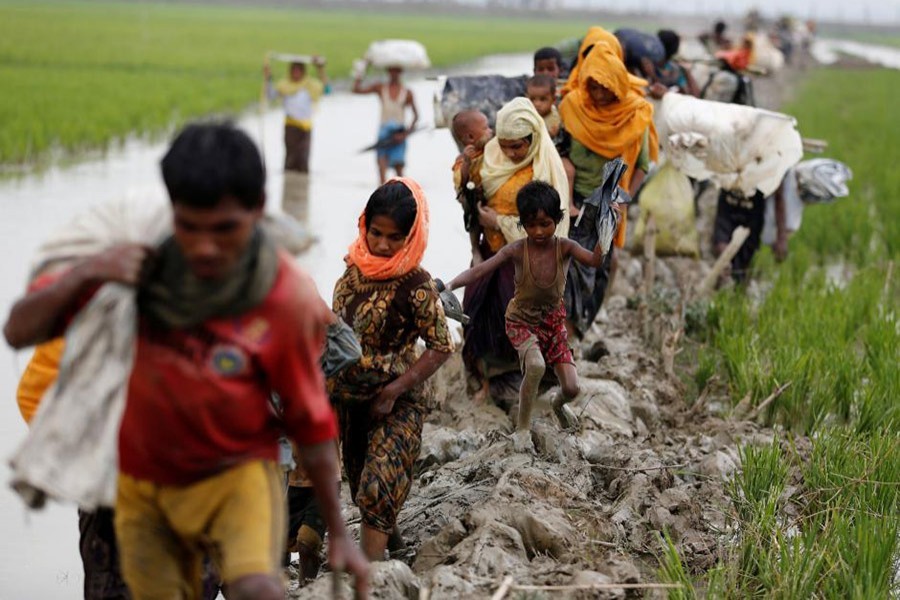Experts have suggested for adopting specific regional approach with active engagement of economic powerhouse like China in resolving Rohingya crisis.
They, simultaneously, recommended for taking liberal peace building policy by countries like Bangladesh in the rapidly changing geopolitical global scenario.
Terming Rohingya issues a non-visible conflict pattern, they on Sunday also called for proper attention of the international communities in the way they paid for visible conflicting events in Syria and Middle Eastern countries.
While local experts called upon key global leaders like Japan to come up with helping mindset for resolving the severe humanitarian disaster happened along with the Myanmar-Bangladesh border.
The suggestions and call were made on the first day of a 2-day international conference on Bangladesh in International Peacebuilding: experience from Japan.
Bangladesh Institute of International and Strategic Studies (BIISS) and Japan Foundation jointly arranged the event at BIISS auditorium in the city.
Professor Dr Hideaki Shinoda of Hiroshima Peacebuilders Center, Japan termed Rohingya issue a severe humanitarian disaster overlooked by international community.
"I think, there is a lack of regional approach to deal with such a serious issue. We just can't go without the Asian superpower China to solve any problems in South and Southeast Asia," he said.
While speaking in the first working session, Mr. Shinoda highlighted the importance of proper identification of the problem and analysing it before discussing at the regional level in a structured way.
"Japan should be very much keen to resolve the crisis but China's active participation or engagement in the discussion is essential here," he said.
He also laid emphasis on imparting proper education to the people working in and around the Rohingya camps.
"There is a danger of Rohinga case to be linked with worst case of regional issues in the highly conflict-prone South Asia as it's not just a problem for Myanmar and Bangladesh," he added.
Dr Mari Katayanagi, professor of Hiroshima University in Japan, was critical over applying different standards in different cases of human rights violations by the economic powerhouses in the world.
"We're astonished seeing that a country, which talks and slams a lot about violation of human rights in some specific countries, does not raise voice against such violations in other countries," she said.
The professor said people have to raise their voices against such double standards or triple standard policies applied in the international community.
Speaking as special guest at the inaugural session of the conference, Japanese ambassador to Bangladesh Hiroyasu Izumi hailed Bangladesh for giving shelter to too many Rohingya people on humanitarian ground.
"Japan like other countries is working hard to provide humanitarian support in resolving such problem," he said.
The Japanese envoy also suggested for dialogues to overcome the difficulties.
Speaking as chief guest, Chairman of parliamentary standing committee on Ministry of Foreign Affairs (MoFA) Dr Dipu Moni said Bangladesh started participating in the peacekeeping mission since 1988.
"Bangladesh is one of the top contributors with sending 7105 Bangladeshis while 129 people were killed while discharging duties to maintain peace," she said.
She said the peace building is no longer conceived as merely limited to post-conflict scenario. The need for peace building is also felt in countries that are currently not witnessing any conflict.
The minister, however, reaffirmed the country's commitment in contributing peace and stability in and around the region.
BIISS Chairman Ambassador Munshi Faiz Ahmed and its director general Major General AKM Abdur Rahman, among others, also spoke on the occasion.


